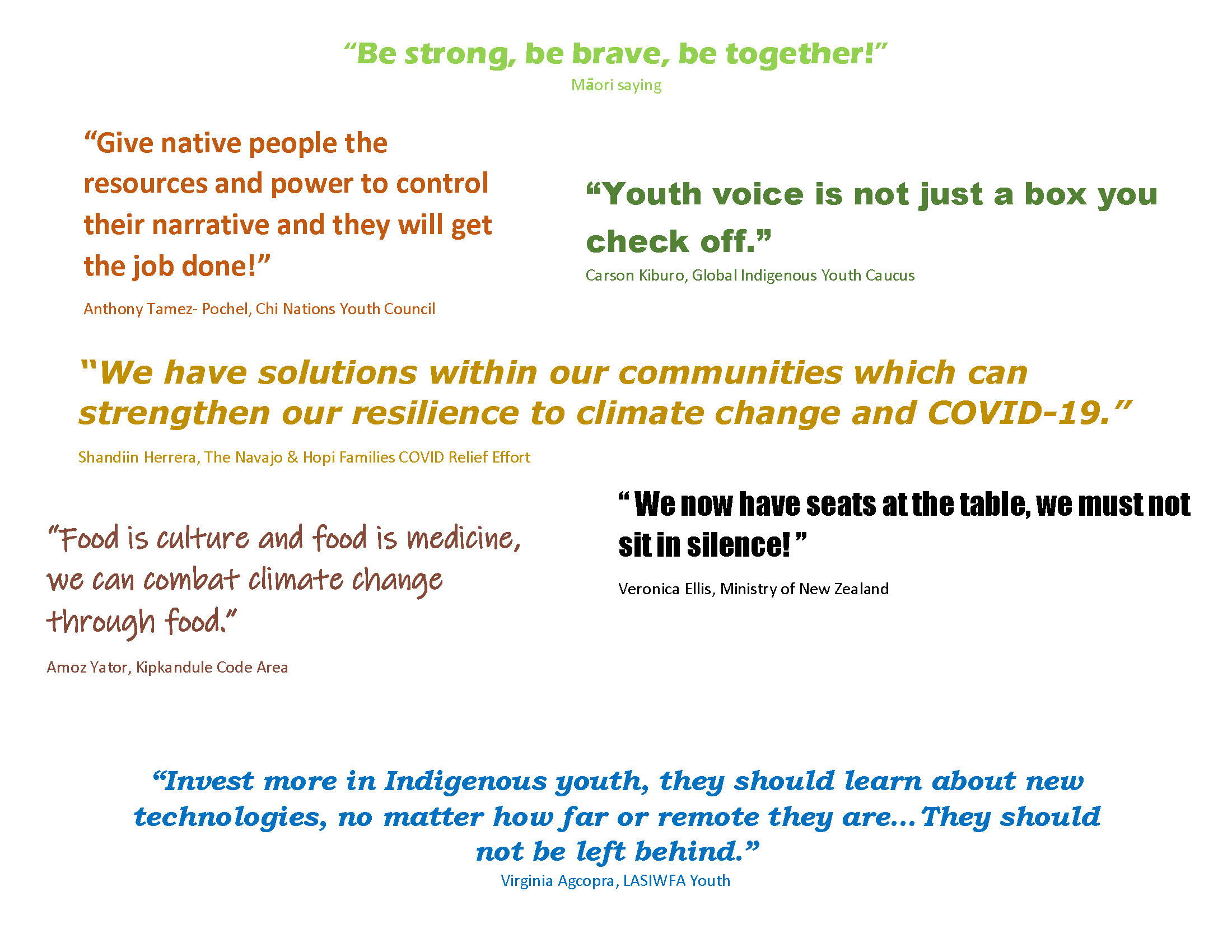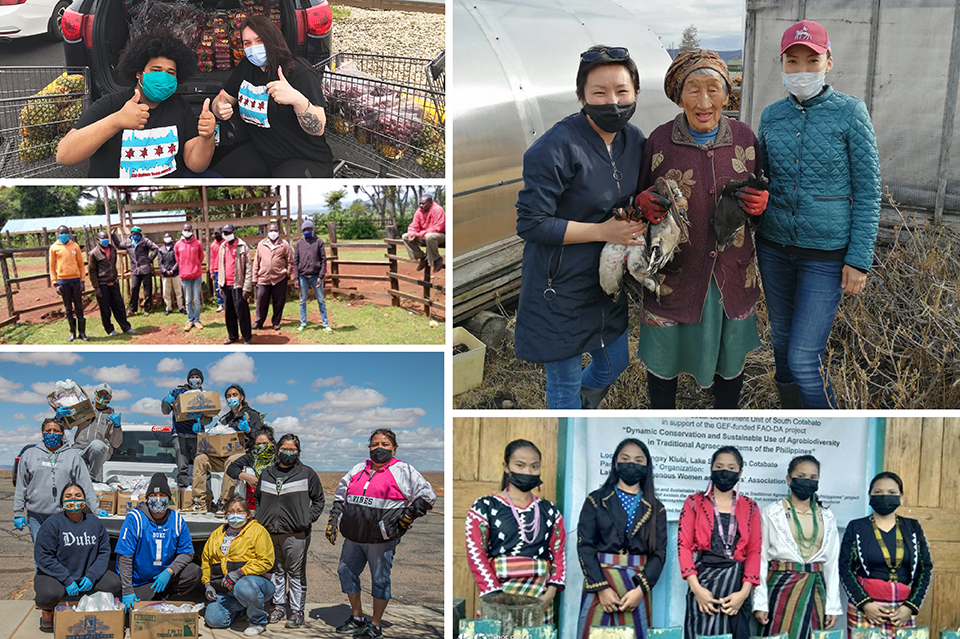New FAO publication highlights the actions of Indigenous youth in local food systems during times of adversity

Even though Indigenous Peoples’ practices have little impact on greenhouse gas emissions and global warming, climate change and extreme weather events aggravated by the COVID-19 health crisis have had an enormous impact on their livelihoods, cultures, identities and rights.
The new publication “Indigenous youth as agents of change, Actions of Indigenous youth in local food systems during times of adversity” describes the impacts of climate change and the COVID-19 pandemic on Indigenous communities around the world, and the actions of six Indigenous youth groups to protect their communities. The Indigenous youth initiatives presented in the publication demonstrate that youth, and especially Indigenous youth, can play a key role as agents of change and offer innovative solutions to these global challenges.
Indigenous Peoples are the gatekeepers of cultures and knowledge systems on biodiversity that have existed for thousands of years. With 214 million Indigenous youth in more than 90 countries, their actions are central to mitigating and adapting to climate change. They have proven that they are a driving force in protecting their environment and biodiversity, and can make key contributions to climate policies.
Voices of Indigenous youth
The publication was officially launched on 1 October at the pre-COP26 #All4Climate event, Voices of Indigenous youth as agents of change. The event, co-organized by FAO, with the Center for Native American Youth, Global Indigenous Youth Caucus and YOUNGO, provided a space for Indigenous youth to share their experiences with each other and with policymakers.

 Quotes from the ‘Voices of Indigenous youth’ event
Quotes from the ‘Voices of Indigenous youth’ event
The power of Indigenous youth
One of the themes that emerged from the initiatives portrayed in the publication is that Indigenous youth are strategically positioned to strengthen community and food system resilience. They are able to “walk between both worlds” – that is, to navigate both traditional Indigenous Peoples’ cultures, knowledge and lifestyles as well as those of modern sciences, cultures and societies.
This unique position offers Indigenous youth the chance to contribute to creating more sustainable, resilient and interdependent food systems for future Indigenous and non-indigenous generations (see LASIWFA Youth in the Philippines and the Navajo and Hopi Families Covid-19 Relief Fund in the United States of America). Other initiatives described show how Indigenous youth used technology to effectively reach their communities, understand their needs, and make public information more accessible for community members during times of crisis, for example through social media (see Kipkandule Code Area in Kenya and Kyubeye Youth in Russia). Their stories also highlight how Indigenous youth have supported in building connections between Indigenous Peoples, governments and international organizations (see Indigenous Support Project in Canada and Chi Nations Youth Council in the United States of America).

A selection of photos provided by the six youth groups for the publication
The publication provides lessons learned and entry points for the future from the perspective of the Indigenous youth groups. The document also provides a wider set of recommendations for the international community including the Koronivia Joint Work on Agriculture network on how to successfully support Indigenous youth as agents of change towards a more resilient and food secure future. Recommendations include:
- adequate access to funding, knowledge, information and education;
- access to land, water and necessary infrastructure;
- increased collaboration with and inclusion of Indigenous youth and traditional leaders in decision making and actions that affect them;
- the use of Free, Prior and Informed Consent;
- collection of ethnically disaggregated data;
- inclusive and informed terminologies and,
- prioritization of Indigenous-led and biocentric ecological restoration in policies addressing climate change and environmental protection.
Indigenous youth are key allies in maintaining and increasing global carbon storage, biodiversity, sustainable management of ecosystems, and global adaptation to climate change. There is an urgent need to adequately support and empower Indigenous youth.
Take a look at the publication here!
For questions or further information, please email [email protected]
* This publication was undertaken with support from the Boosting Koronivia project funded by the Federal Ministry of Food and Agriculture of Germany
